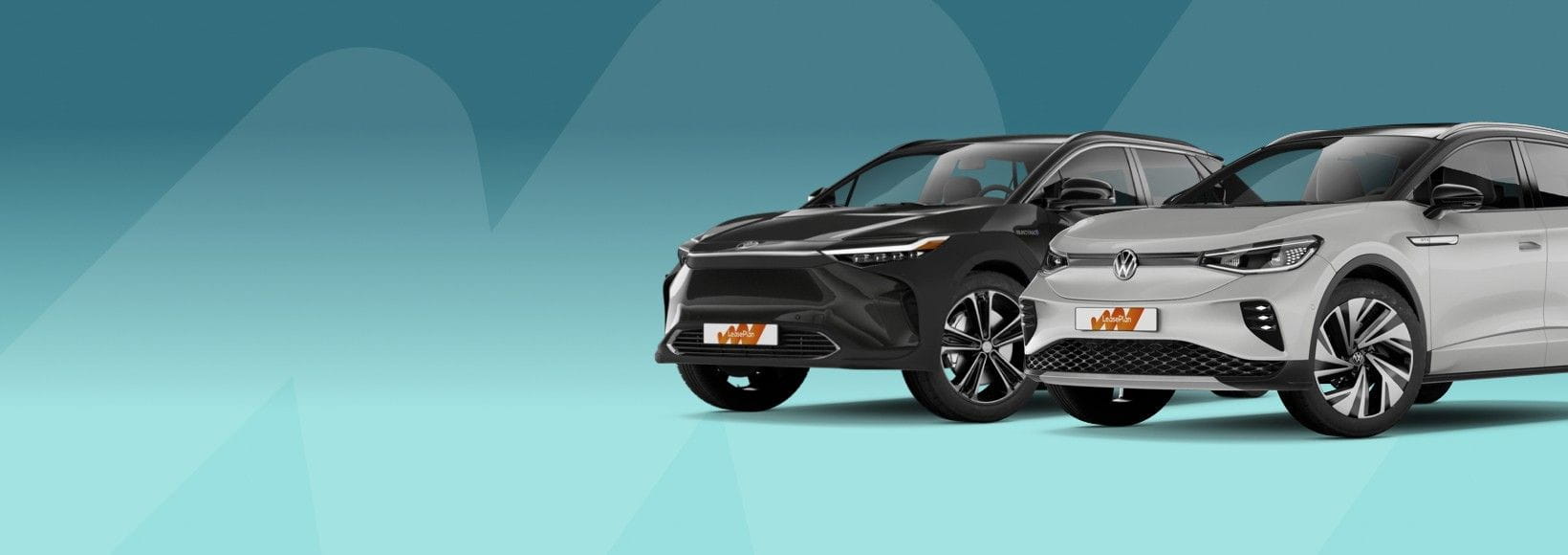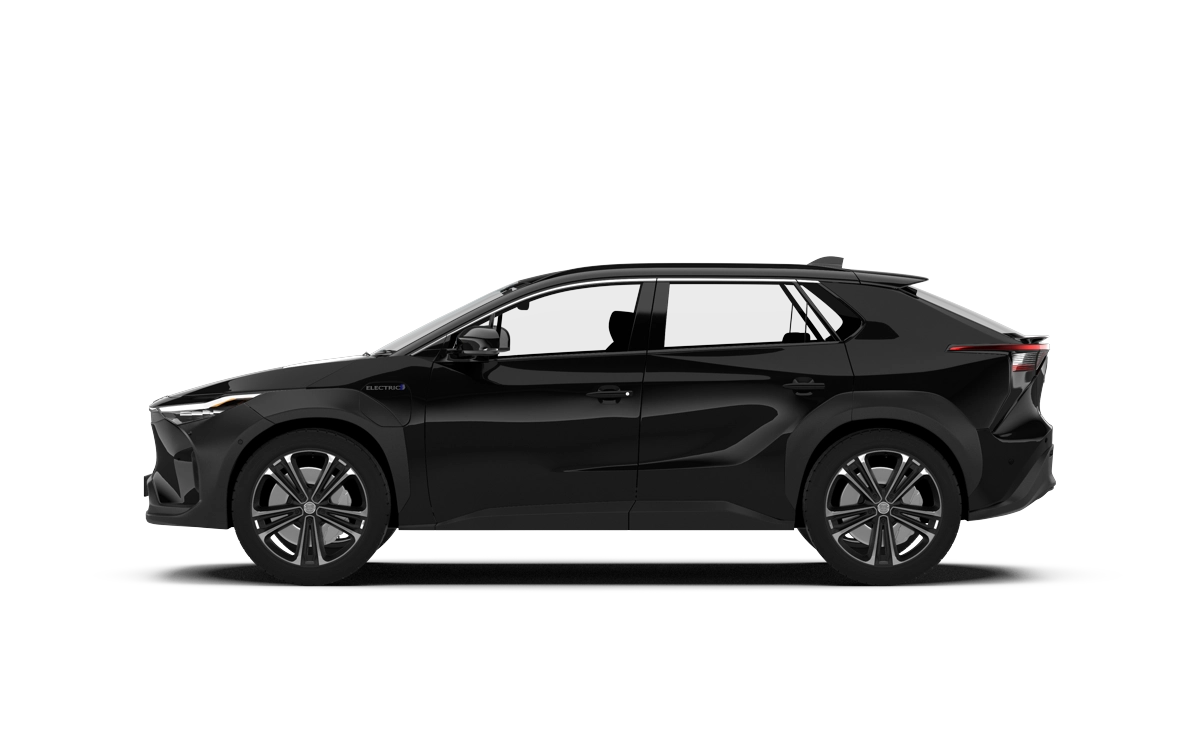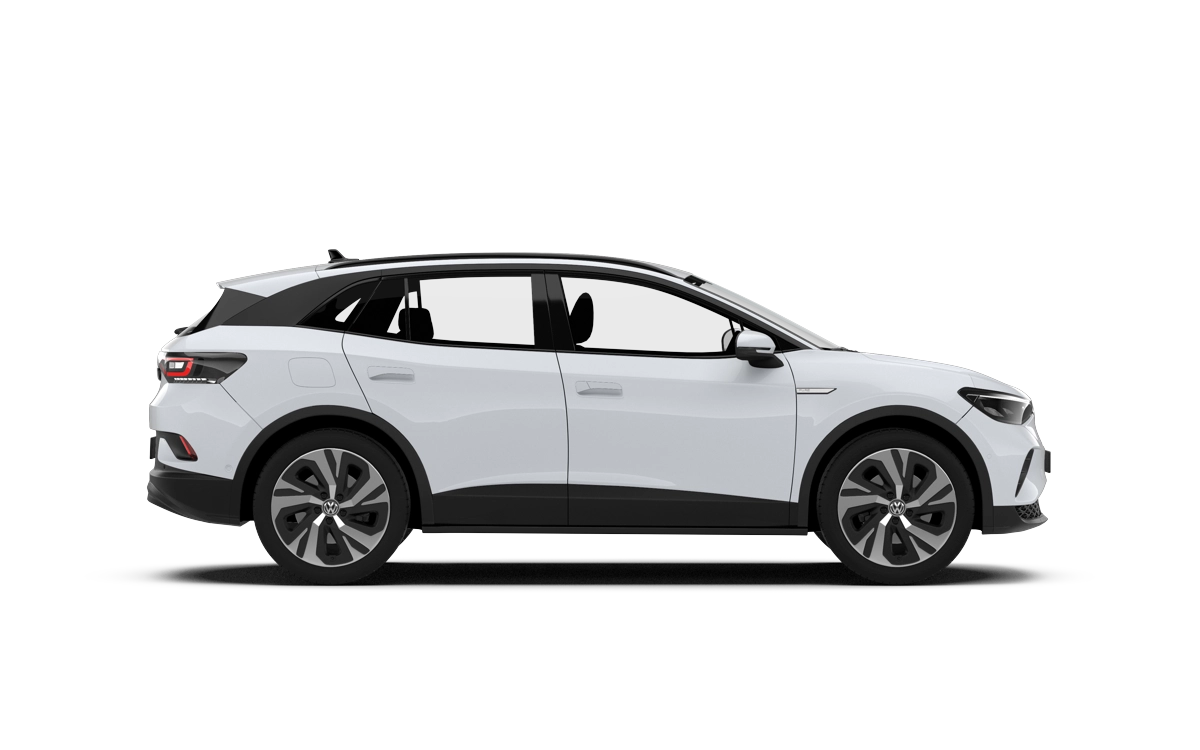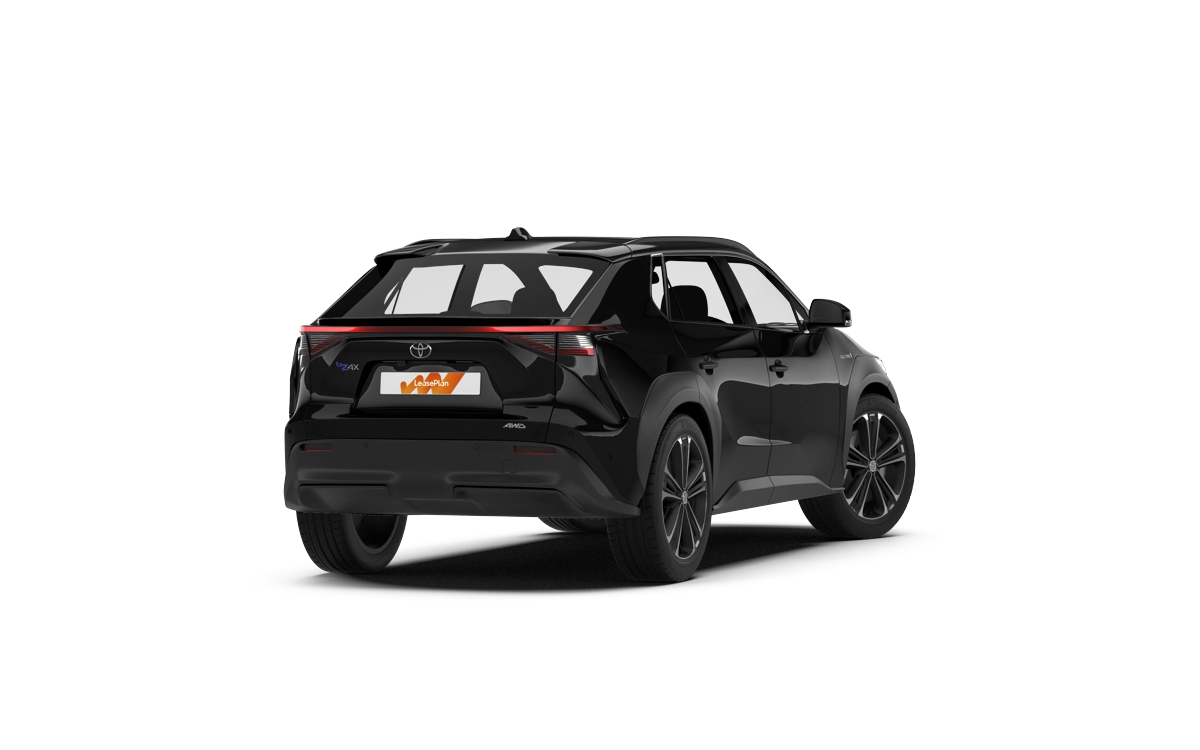
Toyota bZ4X vs Volkswagen ID.4
Same target audience, different approach
While Volkswagen jumped on the EV bandwagon some time ago, Toyota has taken its time to introduce its first all-electric model. The resulting bZ4X is an impressive feat that focuses on driving pleasure, design and safety. The ID.4 is based on a slightly more conventional recipe that is clearly pleasing many company car drivers.

Pleasant interior
With a substantial length of almost 4.7 metres, the Toyota bZ4X treats you to a very spacious interior and boot capacity of 452 litres. The soft, woven upholstery on the dashboard carries a large, impressive infotainment system and creates the welcoming atmosphere of a comfortable lounge. The screen is very easy to use despite its wide range of features.
The VW ID.4 is a little sleeker. The upholstery is restrained and the infotainment system has a relatively simple design. The only frivolity are the digital sliders, which take some getting used to. There is definitely no reason to complain about the leg- and headroom, and although the car is 11 centimetres shorter than its Japanese rival, its boot can still handle 543 litres of luggage.

Front- or four-wheel drive
The Toyota base model is a front-wheel drive. The standard FWD version already gives you 204 hp and goes from 0 to 100 kilometres an hour in just 7.5 seconds. Its steering is comfortable and confident. And for even more performance and fun, you can go for the 4WD. It accelerates even faster and has a whole host of driving modes that allow you to master a wide variety of surfaces. What is great about Toyota is that all models include most advanced driver assistance systems.
Volkswagen's advantage is that it offers the ID.4 in many versions. A single rear motor with an additional power source at the front in the 4Motion or GTX, a power output from 148 to 299 hp, you name it. It also has more accessory levels than Toyota. That does make it more difficult to choose.

Range and charging
Toyota sticks to one battery size: 64 kWh net. According to the WLTP cycle, this results in a range of around 500 kilometres. The make is proud of its highly advanced battery management and offers a warranty of 10 years or 1 million kilometres. It can charge at the usual 11 kW at a conventional charger and at 147 kW at a fast charging station.
Volkswagen gives you the option of two battery sizes: 52 or 77 kWh. The smallest battery will theoretically last for 361 kilometres, while the larger one has a range of up to 537 kilometres from where you start off. Volkswagen's warranty covers the regular eight years or 160,000 kilometres. The fast charging capacity of 118 to 143 kW is middle of the road.
Strong rivals
So who is the winner? Technologically, Toyota has the upper hand somewhat. However, VW has the advantages of a wider range and more personalised options. Either way, both the bZ4X and the ID.4 are excellent electric crossovers!


